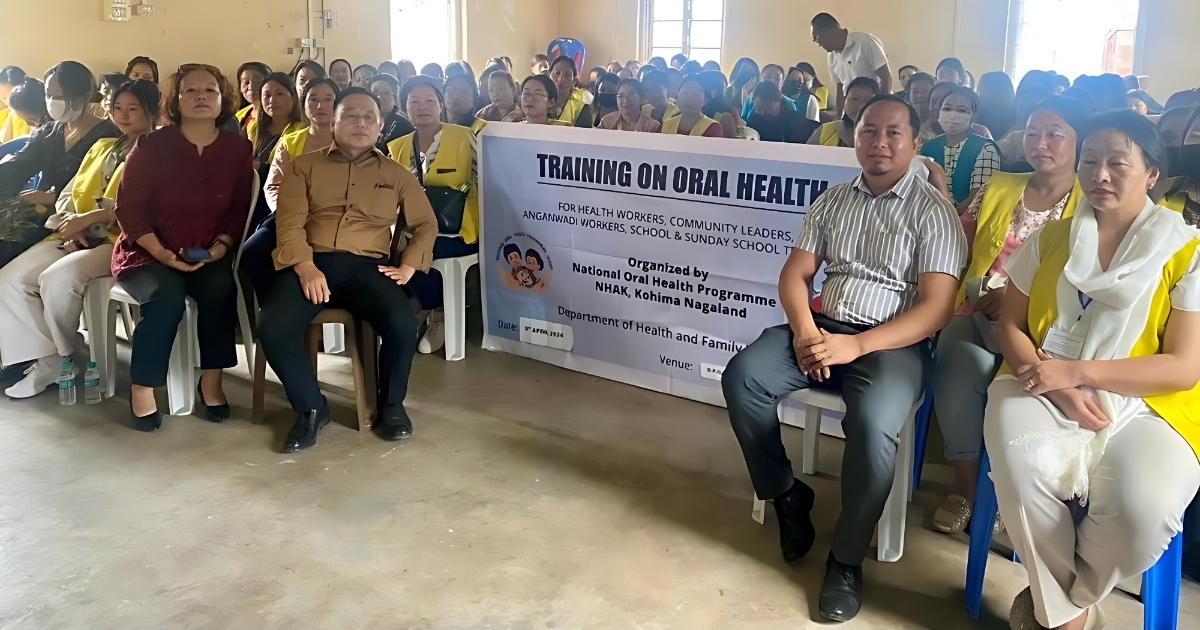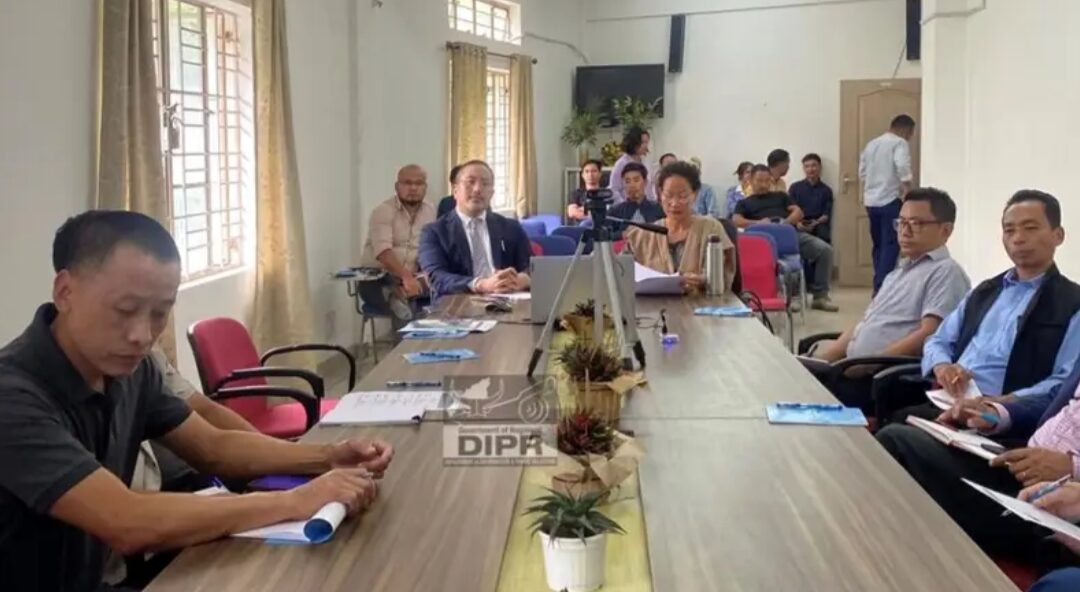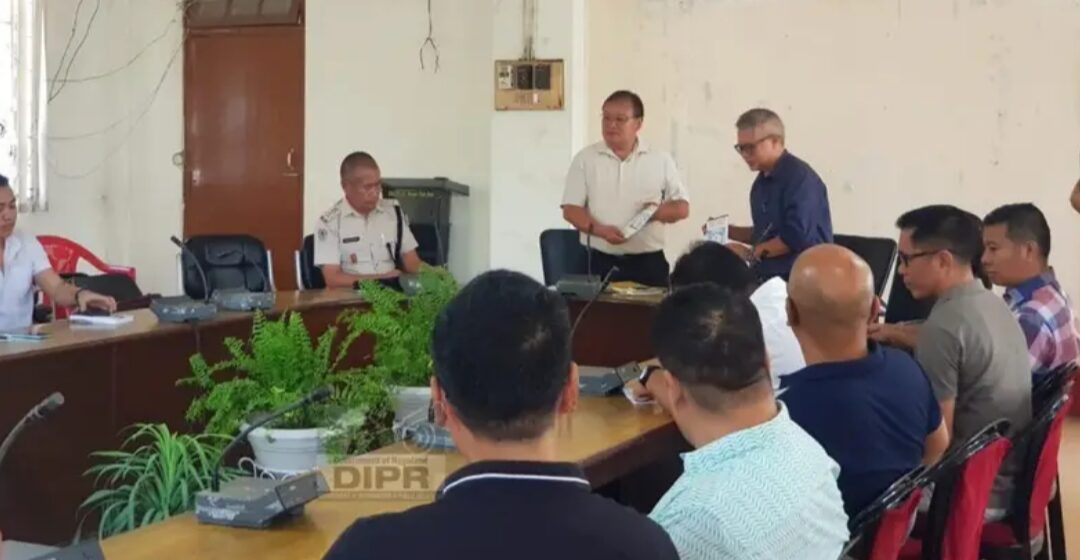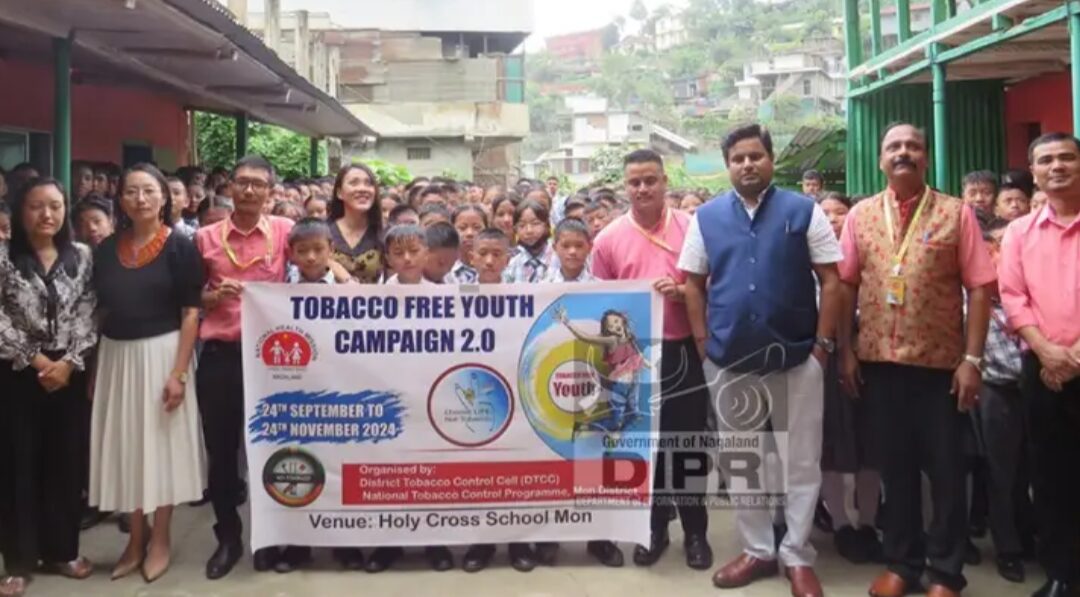On 9 April 2024, anganwadi workers in Kohima, Nagaland, participated in a vital training session focusing on oral health and the negative consequences of tobacco use. The National Tobacco Control Programme (NTCP), under the National Health Mission of Nagaland’s Department of Health & Family Welfare, organised the event at the District Programme Officer’s conference hall in the Social Welfare Department.
Dr. Neiphrezo Sorunuo, a skilled dental surgeon, spearheaded the discussion on prevalent oral diseases and the importance of maintaining proper oral health and hygiene. He emphasised the necessity of seeking prompt treatment for dental problems, cautioning that neglecting them could potentially lead to the development of oral cancer.
Also Read: Nagaland Medical Students Demand Transparency in Medical Officer Recruitment
During the session, Dr. I Simon Sumi, the District Nodal Officer for NTCP, shed light on the detrimental effects of tobacco use. He pointed out that a significant number of young people start using tobacco products between the ages of 15 and 24, contributing to premature deaths worldwide.
Dr. Sumi also highlighted the alarming statistic that around one-third of the population is exposed to secondhand smoke, resulting in an estimated 600,000 premature deaths each year.
Also Read: Fastfoodie: Connecting Customers, Restaurants, and Youth in Nagaland
The nodal officer stressed the importance of implementing evidence-based strategies to reduce tobacco use and minimise exposure to secondhand smoke. These strategies are crucial for effective tobacco control measures and protecting public health.
To promote oral hygiene awareness, the training session concluded with a hands-on demonstration of proper teeth brushing techniques. Participants received toothbrushes and toothpaste to take home, encouraging them to maintain good oral hygiene practises.
Anganwadi workers, who are community-based workers under the Integrated Child Development Services programme in India, play a vital role in providing healthcare, nutrition, and pre-school education to children under six years old and their mothers.
Also Read: Neiphiu Rio: Opposition-less Govt Key to Naga Issue Resolution
By equipping these workers with knowledge about oral health and the dangers of tobacco, the training aims to foster better health outcomes for the communities they serve.
The event highlights the importance of oral health as an integral part of overall well-being. Poor oral hygiene can lead to various health issues, such as tooth decay and gum disease. Furthermore, tobacco use poses significant risks, being a major contributing factor to oral cancer, lung cancer, heart disease, and other chronic illnesses.
Through raising awareness and providing essential training to anganwadi workers, the National Tobacco Control Programme and the Department of Health & Family Welfare in Nagaland are taking proactive measures to combat the harmful effects of tobacco and promote better oral health practises among the population.
Also Read: Bundesliga U-13 Trials to Feature 12 Players from Nagaland
By empowering these community workers with the necessary knowledge and skills, they can make a positive impact on the health and well-being of the people they serve, particularly children and mothers.
As the training session concludes, it is evident that the efforts of the organisers and the dedication of the anganwadi workers will go a long way in creating a healthier future for the communities in Kohima and beyond.




